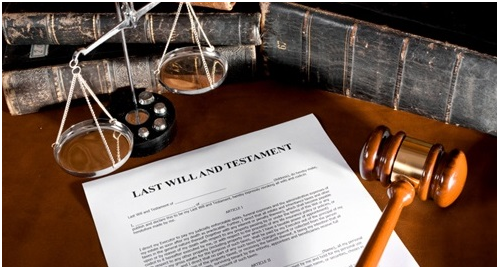Joshua Taylor, partner at Keystone Law Group, discusses the lis pendens (also referred to as a Notice of Pendency Action). Read the complete article below for more details. Click the YouTube Channel subscribe button to be notified when new videos are published.
What Is a Lis Pendens?
The purpose of a lis pendens is to give notice of a claim affecting the subject real estate to any persons who subsequently acquire an interest in that property (e.g., subsequent purchasers or lenders on the property) so that any judgment in the underlying action will be binding upon such persons — even if they acquire their property interest before that judgment is actually rendered.[1]
But a lis pendens does not prevent the actual sale of real estate, per se. Rather, due to the ubiquitous use of title insurance by prospective purchasers to insure title on real estate sales (and the certainty that any potential lender will check title before approving any loan against property), the cloud created on title from a recorded lis pendens generally acts to preclude both the sale and any further encumbrances of the affected property for the duration of the underlying action.
A Showing of a "Real Property Claim" is Mandatory
- title to, or the right to possession of, specific real property or
- the use of an easement identified in the pleading, other than an easement obtained pursuant to statute by any regulated public utility.[3]

A Lis Pendens Can be Removed, Foreclosed or “Expunged”, Even if it was Validly Recorded
- the claimant has not made a real property claim in their underlying lawsuit, or
- the court determines that the claimant’s interest in the subject real property may be adequately protected by the posting of an undertaking, or bond.[5]
Determining the Amount of the Bond
Mistakes to Avoid to Recover Your Attorney Fees
Conclusion: Determining Whether a Lis Pendens Is Appropriate Can Be Complicated
Thus, the foregoing makes clear that whether and under what circumstances a lis pendens is appropriate can be a complicated decision fraught with significant risks if a lis pendens is misused (including the potential payment of your adversary’s attorney fees).
For these reasons, and for the purposes of recovering attorney fees, a party who moves to expunge a lis pendens should always, concurrent with the filing of their motion, propose to post an undertaking sufficient to protect the interests of the recording party, if that party’s lis pendens is expunged.
Contact Keystone’s property dispute lawyers to determine how we can help.
Footnotes
[1] Bishop Creek Lodge v. Scira (1996) 46 Cal.App.4th 1721.
[2] Such claim may be filed with the court along with the filing of the lis pendens.
[3] Code Civ. Proc. § 405.4.
[4] The proper procedure is a motion to expunge lis pendens. As an alternative (or in addition) to seeking expungement, the parties to the litigation may always contract around the lis pendens, by, for example agreeing to withdraw the lis pendens so long as the proceeds from the sale of the subject real property are secured. Contact us for a withdrawal of lis pendens form.
[5] Code Civ. Proc. §§ 405.31, 405.33.
[6] Code Civ. Proc. § 405.31 (emphasis added).
[7] Code Civ. Proc. § 405.33.
[8] Id.
[9] See Elder v. Carlisle Insurance Company (1987) 193 Cal.App.3d 1313 (finding that an undertaking given as a condition to the expungement or non-expungement of a lis pendens serves to protect only against damages that actually result from the expungement or non-expungement and that a judgment on unjust enrichment did not support the recordation of a lis pendens).
[10] The current statutes governing the expungement of a lis pendens can be found in Code of Civil Procedure (“CCP”) sections 405.30, et seq, but primarily sections 405.32 and 405.33. The precursors to such sections were CCP sections 409.1 and 409.2.
[11] Castro v. Superior Court (2004) 116 Cal.App.4th 1010.
[12] Trapasso v. Superior Court of Orange County (1977) 73 Cal.App.3d 561.




